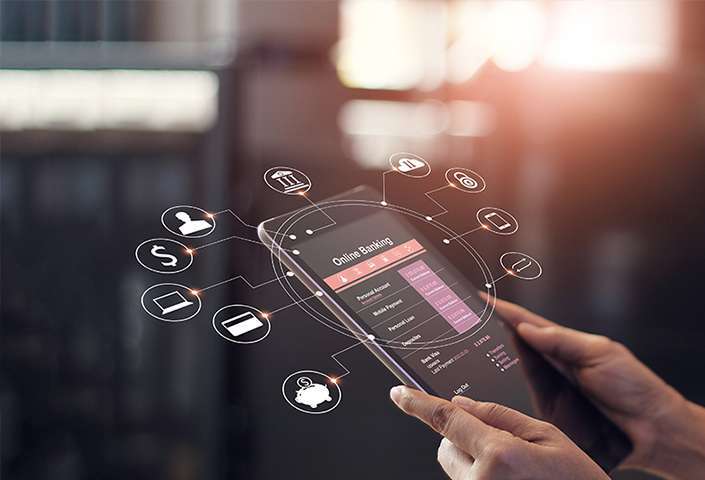
In today’s fast-paced digital world, mobile technology has revolutionized the way businesses acquire customers. With the ubiquitous presence of smartphones and tablets, companies can now reach potential customers anytime, anywhere. This transformation is not just about convenience; it’s about leveraging technology to create more personalized, efficient, and effective marketing strategies. Here’s a look at how mobile technology is reshaping customer acquisition.
1. Increased Reach and Accessibility
Mobile devices have significantly expanded the reach of businesses. Unlike traditional advertising methods, which are often limited by geography and time, mobile technology enables companies to connect with a global audience 24/7. Mobile apps, social media platforms, and mobile-friendly websites make it easier for businesses to engage with customers regardless of their location.
For instance, mobile apps allow companies to send push notifications directly to users’ smartphones, ensuring that promotions, updates, and new product announcements are seen instantly. This immediate and direct form of communication increases the likelihood of customer engagement and conversion.
2. Enhanced Personalization
One of the most powerful aspects of mobile technology is its ability to facilitate personalized marketing. With access to data such as location, browsing history, and app usage, businesses can tailor their marketing messages to meet the specific needs and preferences of individual customers.
Personalized marketing campaigns are more effective because they resonate better with consumers. For example, a retail app can send personalized discount offers based on a user’s previous purchases or browsing behavior. This level of customization enhances the customer experience, making them more likely to make a purchase.
3. Improved Customer Experience
Mobile technology enhances the overall customer experience by making it more convenient for consumers to interact with businesses. Features like one-click purchasing, mobile payments, and user-friendly interfaces streamline the buying process, reducing friction and encouraging more frequent transactions.
Moreover, mobile technology supports omnichannel strategies, allowing customers to seamlessly switch between different platforms and devices. A customer might start shopping on their desktop, continue browsing on their smartphone, and complete the purchase on a tablet. This flexibility improves customer satisfaction and loyalty, which are critical for long-term business success.
4. Data-Driven Insights
Mobile technology generates a wealth of data that businesses can use to refine their customer acquisition strategies. Analytics tools can track user behavior, monitor engagement, and measure the effectiveness of marketing campaigns in real-time. This data-driven approach enables businesses to make informed decisions and optimize their marketing efforts for better results.
For example, by analyzing mobile app usage patterns, a business might discover that users are abandoning their shopping carts at a specific point in the process. Armed with this insight, the company can make targeted improvements to the app’s interface or checkout process, ultimately boosting conversion rates.
5. Cost-Effective Marketing
Compared to traditional advertising channels, mobile marketing can be more cost-effective. Social media advertising, SMS marketing, and mobile apps often require lower budgets than television or print ads. Additionally, the ability to target specific demographics and track performance metrics ensures that marketing spend is used efficiently.
For startups and small businesses, mobile technology offers an affordable way to compete with larger companies. By leveraging mobile marketing tools, these businesses can reach a wide audience without the need for substantial advertising budgets.
6. Social Media Integration
The integration of mobile technology with social media platforms has further amplified its impact on customer acquisition. Social media apps on mobile devices enable businesses to engage with potential customers in real-time, fostering community building and brand loyalty.
Social media advertising allows for highly targeted campaigns based on user demographics, interests, and behaviors. Interactive content such as polls, stories, and live videos can capture attention and drive engagement, leading to increased brand visibility and customer acquisition.

Benefits of Mobile Technology on Customer Acquisition
Mobile technology has become an indispensable tool for businesses aiming to attract and retain customers. The shift from traditional marketing methods to mobile-centric strategies has brought numerous benefits that enhance the effectiveness of customer acquisition efforts. Here are some key benefits of mobile technology on customer acquisition:
1. Wider Reach and Accessibility
Mobile technology allows businesses to reach a broader audience than ever before. With billions of people using smartphones globally, companies can connect with potential customers anytime and anywhere. Mobile apps, social media, and mobile-optimized websites ensure that businesses are always accessible to their target audience.
2. Enhanced Personalization
Mobile technology provides access to vast amounts of user data, enabling businesses to create highly personalized marketing campaigns. By leveraging information such as location, browsing history, and app usage, companies can tailor their messages to individual preferences and behaviors. Personalized marketing increases engagement and conversion rates as customers receive content and offers that are relevant to them.
3. Improved Customer Experience
Mobile technology simplifies and enhances the customer experience. Features like one-click purchasing, mobile payments, and intuitive interfaces make the buying process smoother and more enjoyable. Additionally, mobile apps can offer personalized recommendations, loyalty programs, and instant customer support, further enhancing the user experience and encouraging repeat business.
4. Real-Time Engagement
Mobile technology enables real-time engagement with customers. Push notifications, SMS marketing, and in-app messages allow businesses to communicate instantly with their audience. This immediacy is crucial for time-sensitive promotions, updates, and customer service, ensuring that customers are always informed and engaged.
5. Cost-Effective Marketing
Mobile marketing is often more cost-effective than traditional advertising channels. Digital advertising on social media platforms, in-app ads, and SMS campaigns generally require lower budgets than TV or print ads. Furthermore, mobile technology allows for precise targeting, ensuring that marketing efforts are directed at the most relevant audience, maximizing ROI.
6. Data-Driven Insights
Mobile technology generates a wealth of data that can be analyzed to optimize marketing strategies. Analytics tools track user behavior, campaign performance, and engagement metrics in real-time. These insights help businesses understand what works and what doesn’t, allowing for continuous improvement and more effective customer acquisition strategies.
7. Increased Customer Loyalty
Mobile apps and loyalty programs help build long-term relationships with customers. Features such as exclusive offers, rewards for repeat purchases, and personalized content keep customers engaged and loyal. A strong mobile presence encourages customers to interact regularly with the brand, increasing lifetime value.
8. Seamless Omnichannel Experience
Mobile technology supports a seamless omnichannel experience, allowing customers to interact with a brand across multiple devices and platforms. Whether a customer starts their journey on a desktop, continues on a tablet, and completes a purchase on a smartphone, mobile technology ensures a consistent and integrated experience. This fluidity enhances customer satisfaction and boosts the likelihood of conversion.
9. Social Media Integration
Mobile technology and social media are intrinsically linked, offering businesses powerful tools for customer acquisition. Mobile users spend significant time on social media platforms, where they can be targeted with ads, engage with content, and participate in brand communities. Social media advertising on mobile devices is highly effective due to its targeting capabilities and interactive formats.
10. Location-Based Marketing
Mobile technology allows for location-based marketing, where businesses can target customers based on their geographic location. Geofencing and beacon technology enable businesses to send targeted messages and offers to customers when they are near a physical store or in a specific area. This hyper-local targeting can drive foot traffic and increase conversions.


